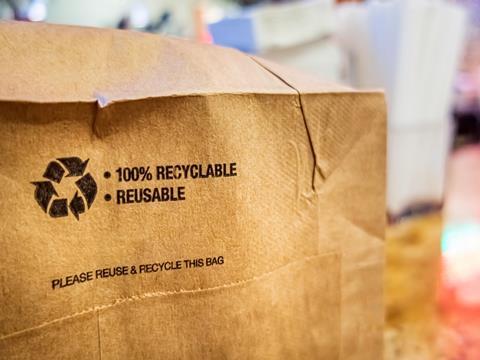
Gartner Inc. yesterday reported that approximately 90% of public sustainability claims will not be met by 2025, adding that companies remain reliant on fossil-based plastics and single-use packaging.
A number of companies have made significant commitments to sustainability initiatives with 2025 deadlines. This includes Unilever’s pledge to halve the amount of virgin plastic it uses by reducing plastic packaging and Mondelēz International’s plans for a 5% reduction in virgin plastic use across its portfolio, alongside commitments from the Ferrero Group, Mars Petcare, Mondi, Sealed Air, and Kraft Heinz, among others, to having entirely reusable, recyclable, or compostable packaging – all by 2025.
According to Gartner, the recycling infrastructure for plastics is currently “limited” or in development. Gartner research claims that 30% of supply chain leaders say they have no or low-maturity sustainability initiatives, often as a result of challenges like limited resources, conflicting priorities, and a lack of understanding of key concepts.
John Blake, senior director analyst with the Gartner Supply Chain practice, explains: “There are a number of reasons why well-intended corporate efforts to establish sustainable packaging are not progressing.
“For example, most kinds of plastics are not broadly recyclable, and even if they were – the recycling infrastructure and the aftermarket for recycled materials are far from mature.
“Therefore, the overwhelming amount of packaging today is not technically recyclable or is not widely recycled in practice.”
As such, Gartner claims that companies are instead relying on the elimination of unnecessary packaging or reducing packaging size in order to reduce overall packaging waste.
However, Gartner suggests that, in some cases, this can help to generate innovation. Many companies are beginning to trial replacements for single-use or virgin, fossil-based plastics. This includes potential solutions like Coca-Cola’s prototype 100% plant-based bottle or the Tesco Loop scheme – although such innovations are not always without additional challenges.
Blake adds: “This challenge can also be a driver of upstream innovation.
“Supply chain leaders can work with their peers to create a pipeline of new products and business models that don’t rely on plastics or single-use packaging. They should challenge their suppliers to commit to producing sustainable packaging material, therefore increasing the organization’s access to recycled or multi-use materials.”
Additionally, Gartner says that companies should urgently plan and implement Extended Producer Responsibility (EPR) legislation to ban single-use packaging. Some governments, including France’s, have already started to take these measures. In 2022, the UK is also bringing in a plastic packaging tax on producers or importers of plastic packaging that include less than 30% recycled content. However, research published by Veolia in August suggests that 83% of businesses surveyed were not aware of the tax.
Another solution put forward by Gartner is the incentivisation of consumers to use reusable packaging and engage with refill models for items like pet food, laundry detergent, and beverages. This is part of Gartner’s suggestion of pivoting to sustainable profit in order to foster a sustainable supply chain.
Gartner also recognises the importance of what it calls “value-aligned ecosystems”. On a pre-competitive level, the group suggests that organisations need to collaborate on innovative recycling methods and packaging solutions. Some early examples of this sort of collaboration include Coca-Cola’s plans not to patent its PlantBottle technology and a World Economic Forum-led initiative for companies in the chemical sector to transition to Low-Carbon Emitting Technologies (LCET).













